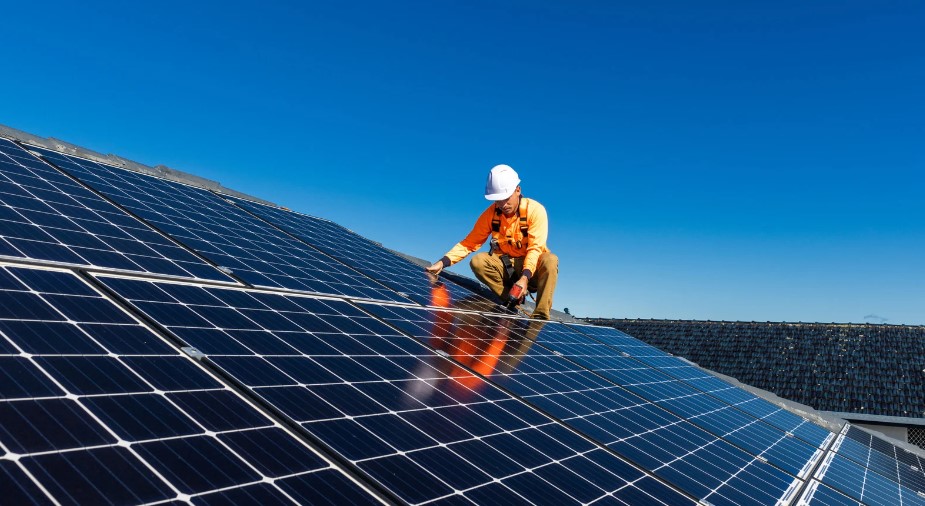
The Importance of Responsible Solar Panel Decommissioning
Solar panel decommissioning refers to the process of removing and disposing of solar panels at the end of their lifespan. As the uptake of solar energy continues to increase, so does the need for responsible decommissioning practices. This blog aims to shed light on the importance of responsible solar panel decommissioning and the potential environmental and economic impacts if not done properly.
Solar panel decommissioning involves the careful removal, disposal, and recycling of solar panels that have reached the end of their useful life. This includes dismantling the panels and properly disposing of any hazardous materials, ensuring minimal impact on the environment.
Responsible decommissioning is crucial for several reasons. Firstly, it prevents the improper disposal of solar panels, which can lead to environmental pollution and health risks. Secondly, it allows for the recovery of valuable resources from the panels, reducing the need for new raw materials and promoting a circular economy. Lastly, responsible decommissioning opens up economic opportunities in the recycling and disposal industry, creating jobs and driving innovation.
The Importance of Responsible Solar Panel Decommissioning
Understanding Solar Panel Decommissioning
Solar panel decommissioning refers to the process of safely removing, disposing, and recycling solar panels that have reached the end of their operational life or are no longer functioning efficiently.

There are several reasons why solar panels might need to be decommissioned. These include physical damage, decreased efficiency, technological obsolescence, or the end of a solar project’s lifespan. Decommissioning ensures that these panels are properly handled and their components are disposed of or recycled responsibly.
The average lifespan of a solar panel is typically between 25 and 30 years. However, factors such as environmental conditions, maintenance, and quality of manufacturing can affect this lifespan. As solar panels reach the end of their useful life, proper decommissioning becomes crucial to prevent environmental harm.
Environmental Impact of Improper Decommissioning
Improper decommissioning of solar panels can contribute to the growing e-waste problem. Solar panels contain various electronic components and hazardous materials that can be harmful if not disposed of correctly. When disposed of in regular landfills, these panels can release toxic substances into the environment, polluting soil and water sources.
Solar panels contain materials such as lead, cadmium, and silicon, which can be harmful if released into the environment. If not properly managed during decommissioning, these toxic materials can leach into the soil and water, posing a risk to human health and ecological systems.
Improperly decommissioned solar panels can end up in landfills, taking up valuable space and contributing to the accumulation of electronic waste. This not only puts a strain on landfill capacity but also hinders the potential for recycling valuable materials. Additionally, improper disposal can lead to contamination of ecosystems and wildlife habitats.
Benefits of Responsible Solar Panel Decommissioning
Responsible decommissioning enables the recovery of valuable resources from solar panels. By carefully disassembling panels and recycling their components, materials such as glass, aluminum, and silicon can be recovered and reused in the production of new panels. This reduces the demand for virgin resources and minimizes the environmental impact of mining and extraction.

Responsible decommissioning helps in preventing environmental pollution. By properly disposing of hazardous materials and recycling components, the release of toxic substances into the environment is minimized. This protects soil, water, and air quality, ensuring a healthier and more sustainable future.
Solar panels consist of several recyclable materials, including glass, metals, and semiconductors. Proper decommissioning allows for the extraction and recycling of these materials, reducing the need for raw materials in future panel production. Additionally, components that are still functional can be reused or refurbished, extending their useful life and reducing waste.
Best Practices for Responsible Decommissioning
Before decommissioning solar panels, proper planning and documentation are essential. This includes determining the most appropriate decommissioning method, ensuring compliance with regulations and safety guidelines, and keeping records of the entire process. Adequate planning ensures that decommissioning is carried out efficiently and responsibly.
During decommissioning, it is crucial to follow proper disposal and recycling methods. This may involve working with certified recycling facilities that specialize in the processing of solar panels. These facilities are equipped to handle hazardous materials safely and effectively recover valuable resources for reuse.
Compliance with relevant regulations and standards is essential for responsible decommissioning. This includes adhering to waste management guidelines, environmental regulations, and occupational health and safety standards. By following these requirements, the risks associated with improper disposal are mitigated, and environmental protection is prioritized.
Economic Opportunities in Solar Panel Decommissioning
Responsible solar panel decommissioning presents economic opportunities in the recycling and disposal industry. The increasing demand for solar panel decommissioning services has led to the creation of jobs in areas such as dismantling, transportation, sorting, and recycling. This industry growth not only stimulates local economies but also contributes to the development of a sustainable and circular economy.

As decommissioned solar panels become more common, a secondary market for used panels is emerging. While these panels may have reached the end of their operational life, they can still have value for certain applications or regions where energy needs are lower. Encouraging the reuse of functional panels can reduce waste and extend their overall lifespan.
Case Studies of Successful Solar Panel Decommissioning
Several successful decommissioning projects have showcased the importance of responsible practices. These projects have demonstrated the effective recovery of resources, use of environmentally friendly disposal methods, and adherence to regulations. Case studies provide real-world examples of how responsible decommissioning benefits both the environment and the economy.
Responsible solar panel decommissioning has a positive impact on both the environment and the economy. By minimizing waste, reducing pollution, and promoting resource recovery, responsible decommissioning contributes to environmental sustainability. Simultaneously, the growth of the recycling and disposal industry creates job opportunities and economic growth.
Conclusion
In conclusion, responsible solar panel decommissioning is crucial for mitigating environmental impacts, minimizing pollution, and promoting sustainable resource management. By adhering to proper disposal and recycling methods, we can protect the environment, recover valuable resources, and create economic opportunities.
It is essential for industry stakeholders and policymakers to prioritize responsible decommissioning practices, ensuring a greener and more sustainable future for the solar energy sector. Together, we can maximize the benefits of solar energy while minimizing its environmental footprint.
Author Profile
- Blogger by Passion | Contributor to many Business Blogs in the United Kingdom | Fascinated to Write Blogs in Business & Startup Niches |
Latest entries
 BusinessJanuary 21, 2026Productivity Tool Trends — What 2026 Users Actually Want?
BusinessJanuary 21, 2026Productivity Tool Trends — What 2026 Users Actually Want? BusinessDecember 26, 2025What Should You Look for When Choosing Fulfillment Services?
BusinessDecember 26, 2025What Should You Look for When Choosing Fulfillment Services? BusinessDecember 9, 2025Scaling E-commerce Internationally – How to Minimise Risk and Optimise Costs With Fintech Solutions?
BusinessDecember 9, 2025Scaling E-commerce Internationally – How to Minimise Risk and Optimise Costs With Fintech Solutions? BusinessDecember 4, 2025Why Secure Messaging Failed at 83% of Fortune 500 Companies in 2025?
BusinessDecember 4, 2025Why Secure Messaging Failed at 83% of Fortune 500 Companies in 2025?

